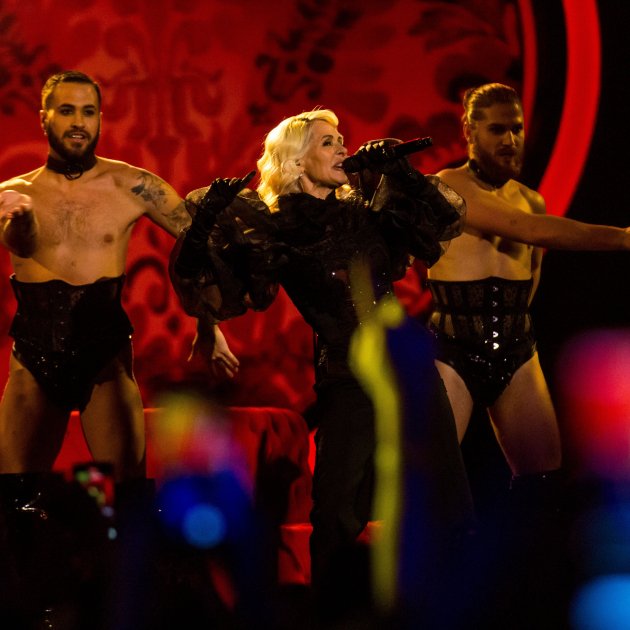The song Zorra by the Valencian duo Nebulossa, which will represent Spain at the Eurovision 2024 festival to be held in Malmö from May 7th to 11th, became the second most viral song worldwide this week on Spotify, with more than 3.3 million plays, and has also accumulated 2.5 million listens on YouTube since its launch just six days ago, after victory at the Benidorm Fest, where Spain chooses its entry. But way beyond its infectious dancefloor appeal, it has become a social phenomenon, largely because of the Spanish word used as its title - zorra, similar in this context to "bitch" in English - and it continues to raise controversy both within Spanish territory and beyond it. Even the Spanish prime minister, Pedro Sánchez, has got in on this cause célèbre, being accused earlier this week by the BBC of defending an "anti-feminist anthem" following statements he had made on the La Sexta TV network, in which he admitted that he liked the song. The UK public broadcaster criticized Sánchez for applauding a song that has been strongly criticised by some feminist collectives, such as the Madrid Feminist Movement, which considers that the song "insults women in a sexist way". The BBC later adjusted its story and removed the reference to the "anti-feminist anthem" from its title, after the Spanish embassy in the UK had responded by uploading the video of the song, with the "official" English version of the lyrics, and highlighting the phrase that is all about empowerment: "I aquella zorra de la cual tenías tanto miedo, se ha apoderado de sí misma..." - "And that vixen you were so afraid of, she's empowered herself..." The debate goes on - and so does the dancing.
Message of empowerment
The heart of the controversy is in the underlying message which comes through from this first-person story of a zorra (literally a "vixen" in English, as used by the lyrics translated above, but that word is so antiquated that "bitch" or "slut" are arguably better equivalents). And just what that message is has been interpreted differently depending on points of view and interests. For one thing, the song has landed in the minefield of Spanish politics, causing confrontation between the left-wing progressives and the Spanish far right. For the former, the song challenges sexist stereotypes and finds a message of empowerment. The Spanish prime minister affirmed that he liked the song and that maybe "the fashosphere would have liked Cara al sol more" - in reference to the Spanish fascist anthem - "but I like this kind of song more." "It seems to me that feminism is not only fair, but also fun", said Sánchez on La Sexta.
Leaving aside the Pedro-splaining, there is huge debate on the song within feminism: some see the song as strongly supportive of women, others say it's misogynist. This Friday, Spanish public broadcaster RTVE's representative for equality, diversity and inclusion, Montserrat Boix, submitted her resignation due to the selection of the Nebulossa song. In a message on her X account, Boix explains that she has resigned because she cannot assume "this position", recalling that her first task in her job was to change the way that the Benidorm Fest was organized after another Eurovision controversy in Spain, two years ago, centred partly on the sexism of lyrics in that year's song, SloMo. Boix writes: 'Zorra' is neither empowerment for women, nor feminism .... I apologize to the victims of gender violence." Thus, one sector of feminism denounces the perpetuation of misogyny implied by the adoption of the 'zorra' label, while another sector considers the way the word is used in the song to be a cry for women's empowerment.
Empowering or sexist? The question is at its most stark in verses like this one: “If I'm out alone, I'm the slut / If I'm having fun, I'm the sluttiest / When I get what I want - Slut, slut / It's never because I deserve it." That is, the song does not shy away from using and propagating a word that is degrading to women - but puts it in the context of a message that reclaims the word. Is that valid? Perhaps part of that message is also the background of those who wrote it and perform it: the Spanish entry in Generation Z's favourite song contest is played by the duo formed by María Mery Bas (55 years old) and Mark Dasous (47), from the town of Ondara in Alacant, who have been married for twenty years, and who raised two children before forming their band in 2018. For Mery and Mark, the message of the song is very clear: "It's a danceable song, an empowering message and an eighties beat." Lyrics with a "transversal" meaning: "We want the message to reach people and we want to see how we can do that, because it is needed in Europe, whether it's translated, or not."
